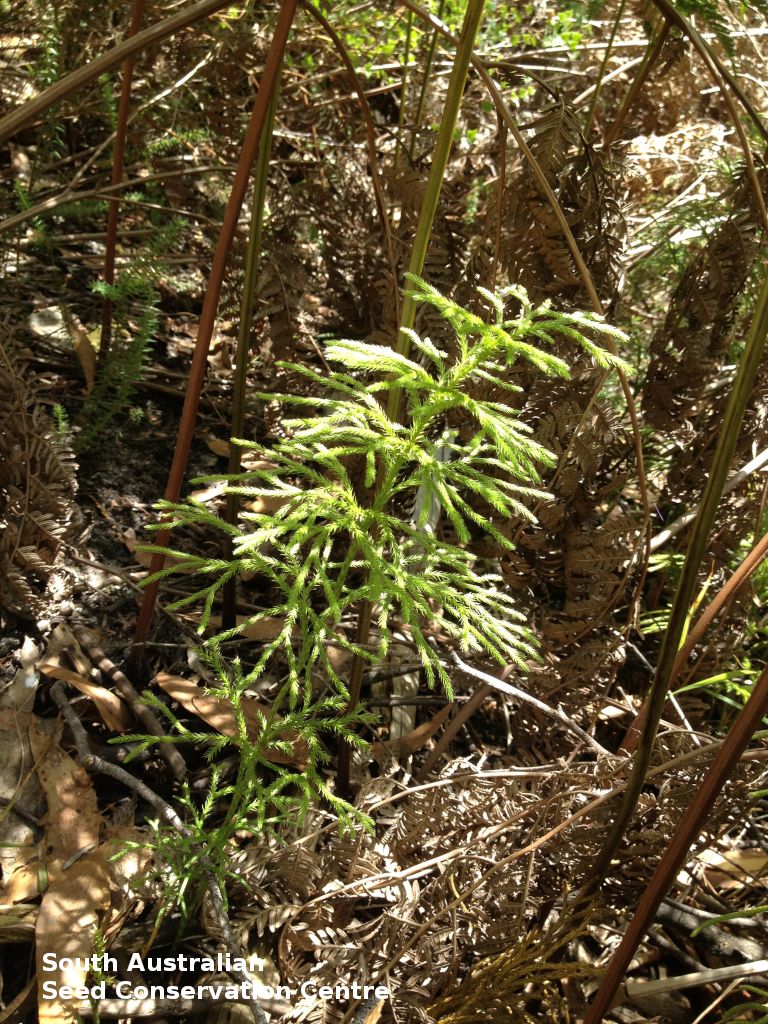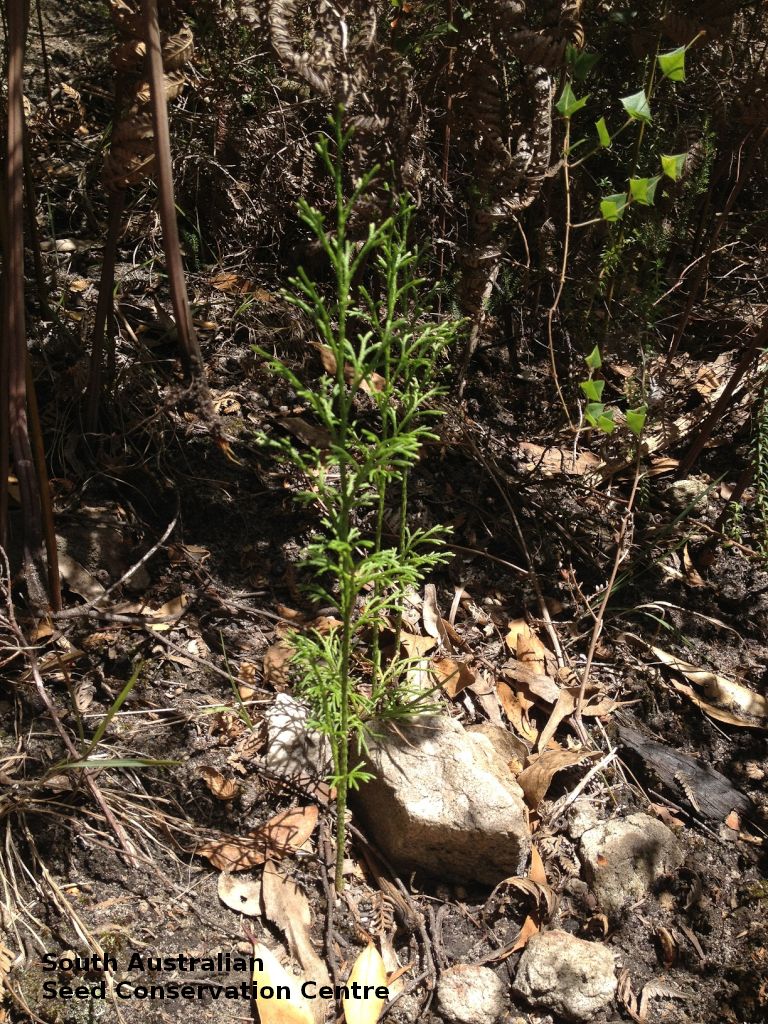



Botanical art
Prior names
Lycopodium densum
Etymology
Lycopodium, from the Greek 'lycos', meaning wolf and 'podion' meaning foot, referring to the leaves, or the roots which resemble a wolf's claws. Deuterodensum, from the Greek 'deuteros', meaning second and Latin 'densa' ,meaning dense,; possible referring to the dense overlapping leaves.
Distribution and status
Found in one location in the southern Mount Lofty Ranges in South Australia, growing on steep hill slopes over sandstone and quartzite on the edge of a gully swamp, within open stringybark forest with a dense understorey of bracken, sedges, shrubs, herbs and grasses. Also found in Queensland, New South Wales, Victoria and Tasmania (and New Zealand, New Caledonia). Native. Very rare in South Australia. Common in the other States.
Herbarium region: Southern Lofty
NRM region: Adelaide and Mount Lofty Ranges
AVH map: SA distribution map (external link)
Plant description
Small perennial clubmoss to 0.5 m high. Grows from underground rhizomes which are much-branched and deeply buried, with aerial stems erect, rigid and repeatedly branched to produce a bushy plant. Leaves spirally arranged, overlapping in all but main stem and coarser branches; either ovate to 2.5 mm long clasping the stems, or linear-lanceolate and spreading to 4 mm long. Strobili (a cone-like structure consisting of sporophylls) numerous, erect and terminal on minor branches to 20 mm long, producing spores during wetter periods of the year. Re-grows from rhizome after fire. Fruits are pale-brown closely overlapping sporophylls, broad-ovate,;abruptly pointed, with jagged margins, spreading when ripe, at tips of stems. Seeds are fine spores.
Seed collection and propagation
Collect strobili that are turning brown, these will contain mature sporohylls with spores. Place them in a sealed paper bag to prevent spores from falling out. Leave fronds in the paper bag to dry. The spores will fall off naturally or give the fronds a gentle shake. Use a very fine sieve to separate any unwanted material. Be careful as the spores are very fine. Store spores in an air tight container in a cool and dry place or in a -20oC freezer. Spores germinate rapidly without any treatment but can be difficult to maintain for any length of time in cultivation as it grows with a mycorrhizal association, and generally resents disturbance, so once established should not be disturbed.